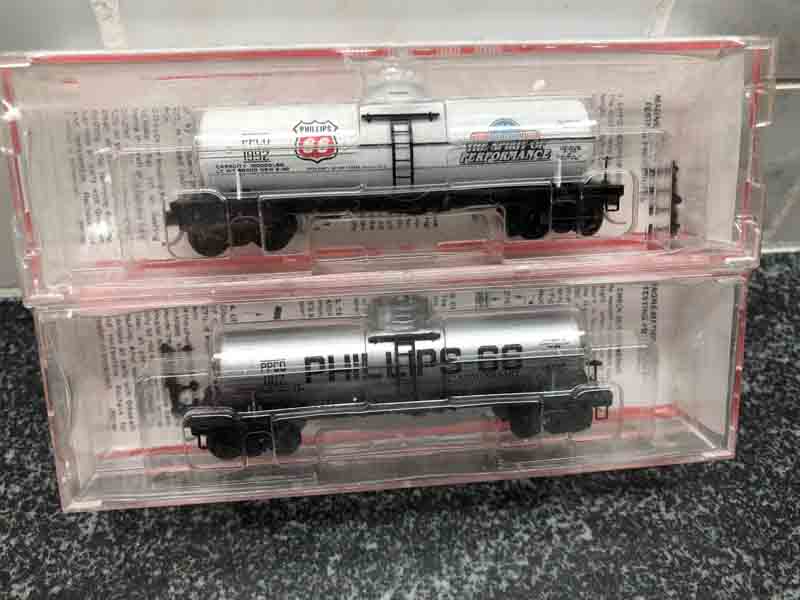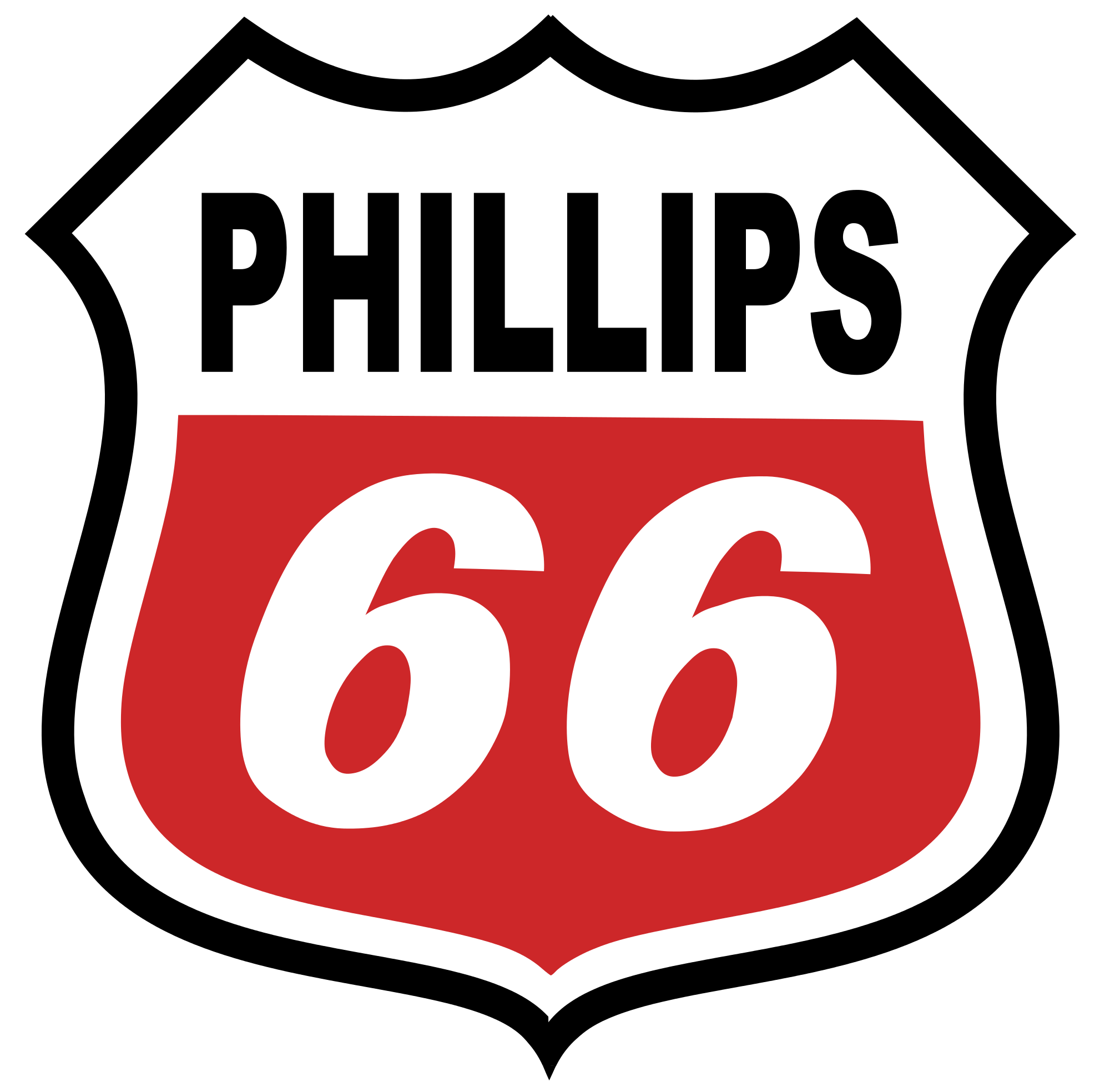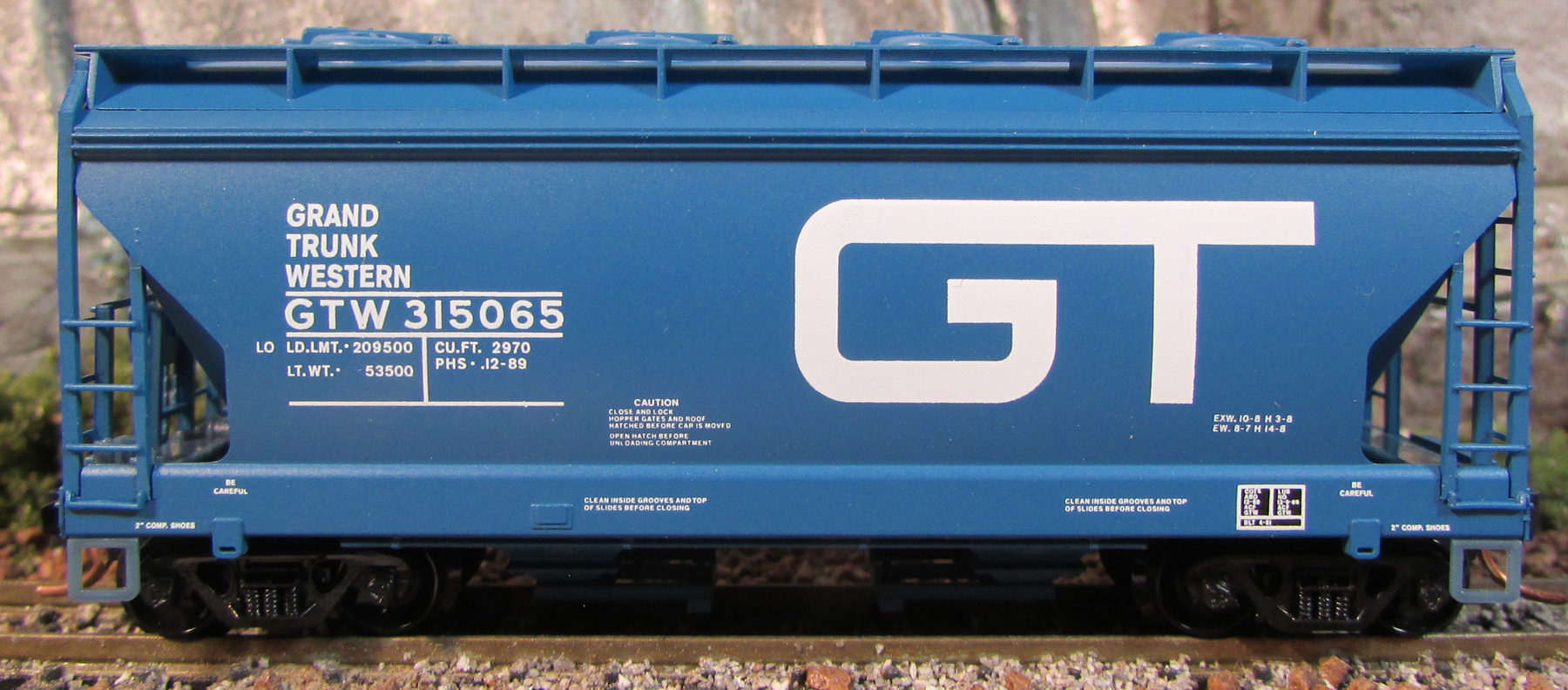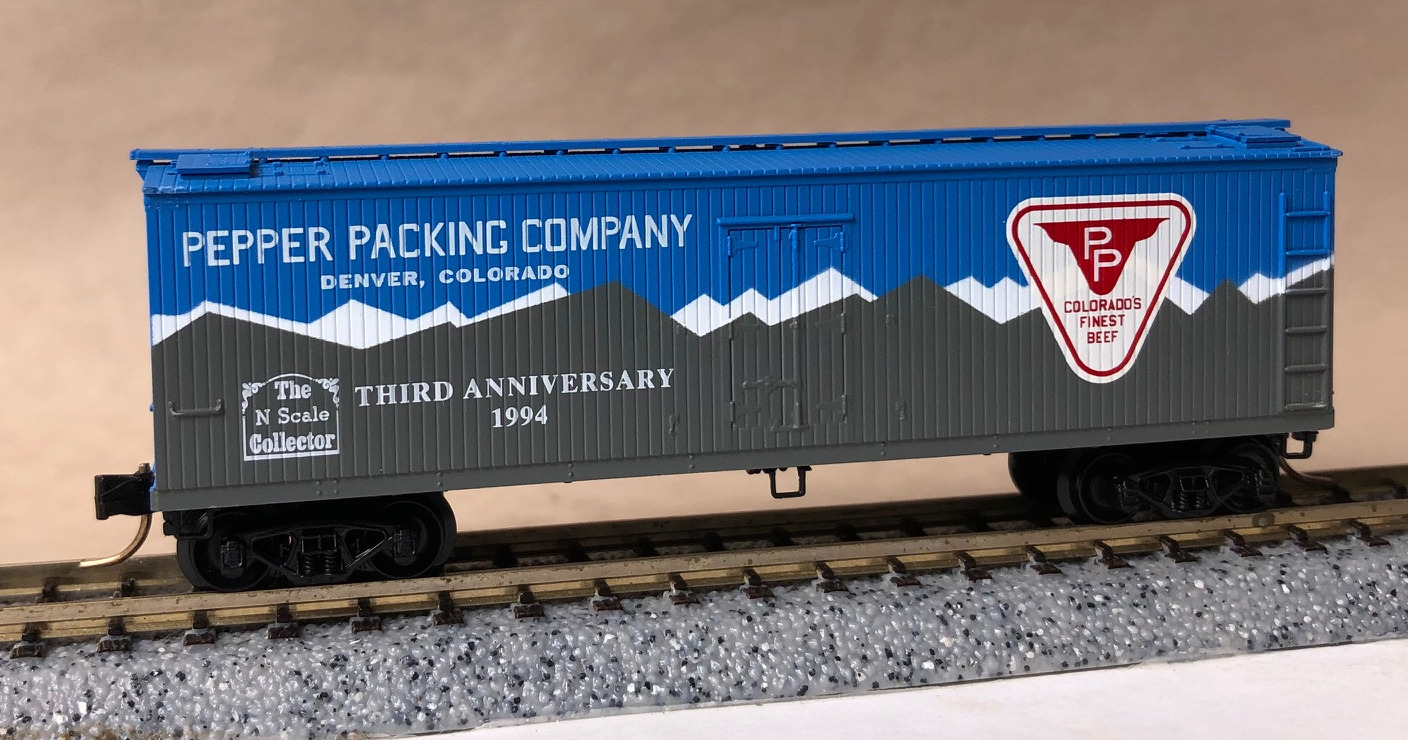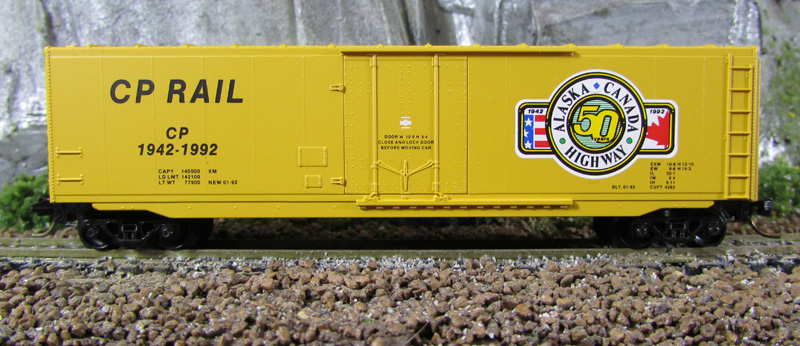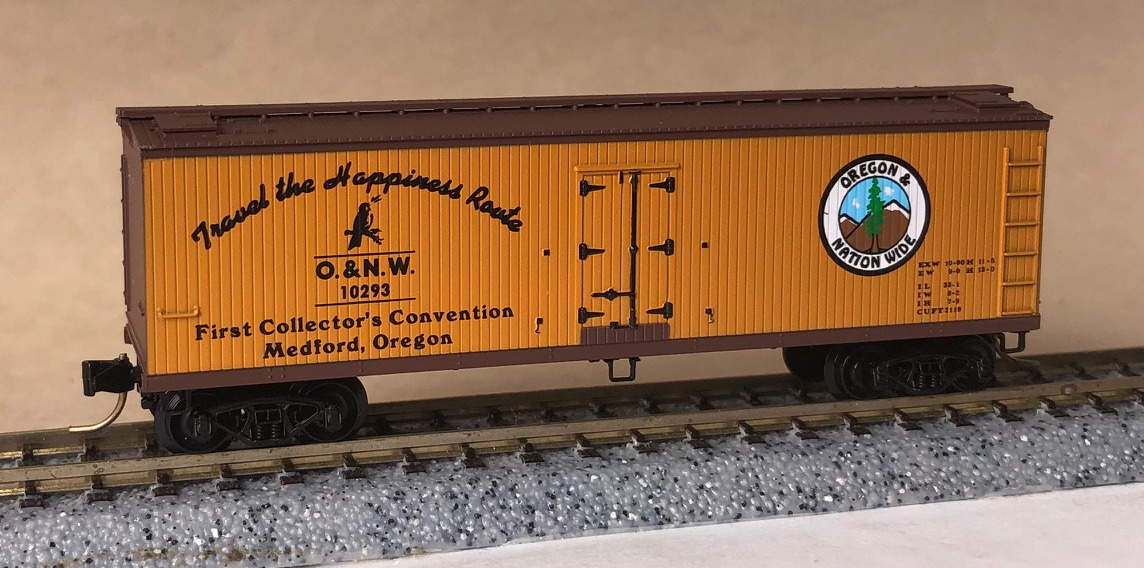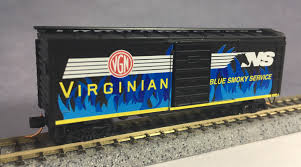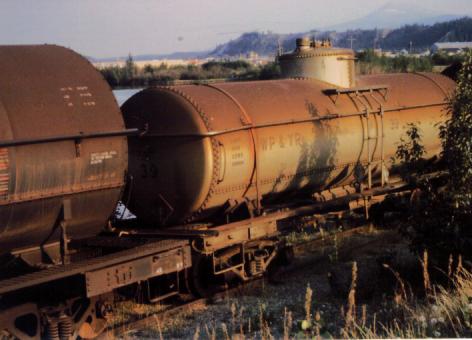Specific Item Information: Phillips 66 75th Anniversary set that is packaged with a promotional booklet.
Model Information: Dating back to 1979, this is the oldest and most popular of Micro-Trains tank cars. Over 200 different regular issues of this body style have been produced as well as hundreds more special runs, including the 2016 N Scale Enthusiast banquet car.
This car models tank cars of approximately 8,000 gallons. The prototypes were built in the 1950's and appeared on freight railroads across the United States and Canada.
This car models tank cars of approximately 8,000 gallons. The prototypes were built in the 1950's and appeared on freight railroads across the United States and Canada.
Prototype History: Single Dome tank cars are a railroad staple. They have been around since the first half of the 20th century. This length car can handle about 10,000 gallons. These railcars carry a wide array of commodities, including liquid fertilizers, chemicals, fuel oils and asphalt, and food-grade oils. Tank cars can be pressurized or non-pressurized, insulated or non-insulated. Single dome cars carry only a single commodity at once. Food-service tank cars may be lined with stainless steel, glass, or plastic. Tank cars carrying dangerous goods are generally made of different types of steel, depending on the intended cargo and operating pressure. They may also be lined with rubber or coated with specialized coatings for tank protection or product purity purpose. The tank heads are also stronger to prevent ruptures during accidents.
One common version is the ACF Type 27 jacketed tank car with expansion dome which was in common use by many railroads and oil companies.
One common version is the ACF Type 27 jacketed tank car with expansion dome which was in common use by many railroads and oil companies.
Road Name History: Lee Eldas and Frank Phillips founded the Anchor Oil and Gas Company in 1904 with the assistance of John Gibson, Frank's father-in-law. . They obtained leases near Bartlesville in the Cherokee Nation, Indian Territory (present Washington County, Oklahoma), and opened a Bartlesville office in 1905. By 1917, Phillips Petroleum was incorporated, and the first Phillips station was opened in Wichita, Kan., in 1927. An important lawsuit that made its way to the Supreme court occurred in 1921 involving Anchor Oil, "Anchor Oil Co. v. Gray, 256 U.S. 519". The company’s research into the uses of natural gas received further impetus in 1926, when it won a patent infringement suit brought against it by Union Carbide over Phillips’s process for separating hydrocarbon compounds.
In 1930, Anchor Oil Co. began looking for a new name and logo – something that would include the Phillips name while reflecting a stronger connection with the automobile. They chose "Pillips 66"
In 1930, Anchor Oil Co. began looking for a new name and logo – something that would include the Phillips name while reflecting a stronger connection with the automobile. They chose "Pillips 66"
Brand/Importer Information: Micro-Trains is the brand name used by both Kadee Quality Products and Micro-Trains Line. For a history of the relationship between the brand and the two companies, please consult our Micro-Trains Collector's Guide.
Manufacturer Information:  Micro-Trains Line split off from Kadee Quality Products in 1990. Kadee Quality Products originally got involved in N-Scale by producing a scaled-down version of their successful HO Magne-Matic knuckle coupler system. This coupler was superior to the ubiquitous 'Rapido' style coupler due to two primary factors: superior realistic appearance and the ability to automatically uncouple when stopped over a magnet embedded in a section of track. The success of these couplers in N-Scale quickly translated to the production of trucks, wheels and in 1972 a release of ready-to-run box cars.
Micro-Trains Line split off from Kadee Quality Products in 1990. Kadee Quality Products originally got involved in N-Scale by producing a scaled-down version of their successful HO Magne-Matic knuckle coupler system. This coupler was superior to the ubiquitous 'Rapido' style coupler due to two primary factors: superior realistic appearance and the ability to automatically uncouple when stopped over a magnet embedded in a section of track. The success of these couplers in N-Scale quickly translated to the production of trucks, wheels and in 1972 a release of ready-to-run box cars.
Micro-Trains Line Co. split off from Kadee in 1990 to form a completely independent company. For this reason, products from this company can appear with labels from both enterprises. Due to the nature of production idiosyncrasies and various random factors, the rolling stock from Micro-Trains can have all sorts of interesting variations in both their packaging as well as the products themselves. When acquiring an MTL product it is very important to understand these important production variations that can greatly enhance (or decrease) the value of your purchase.
Please consult our Micro-Trains Collector's Guide

Micro-Trains Line Co. split off from Kadee in 1990 to form a completely independent company. For this reason, products from this company can appear with labels from both enterprises. Due to the nature of production idiosyncrasies and various random factors, the rolling stock from Micro-Trains can have all sorts of interesting variations in both their packaging as well as the products themselves. When acquiring an MTL product it is very important to understand these important production variations that can greatly enhance (or decrease) the value of your purchase.
Please consult our Micro-Trains Collector's Guide
Item created by: nscalemodeler160 on 2016-04-12 20:04:43. Last edited by gdm on 2020-12-12 18:19:19
If you see errors or missing data in this entry, please feel free to log in and edit it. Anyone with a Gmail account can log in instantly.
If you see errors or missing data in this entry, please feel free to log in and edit it. Anyone with a Gmail account can log in instantly.


